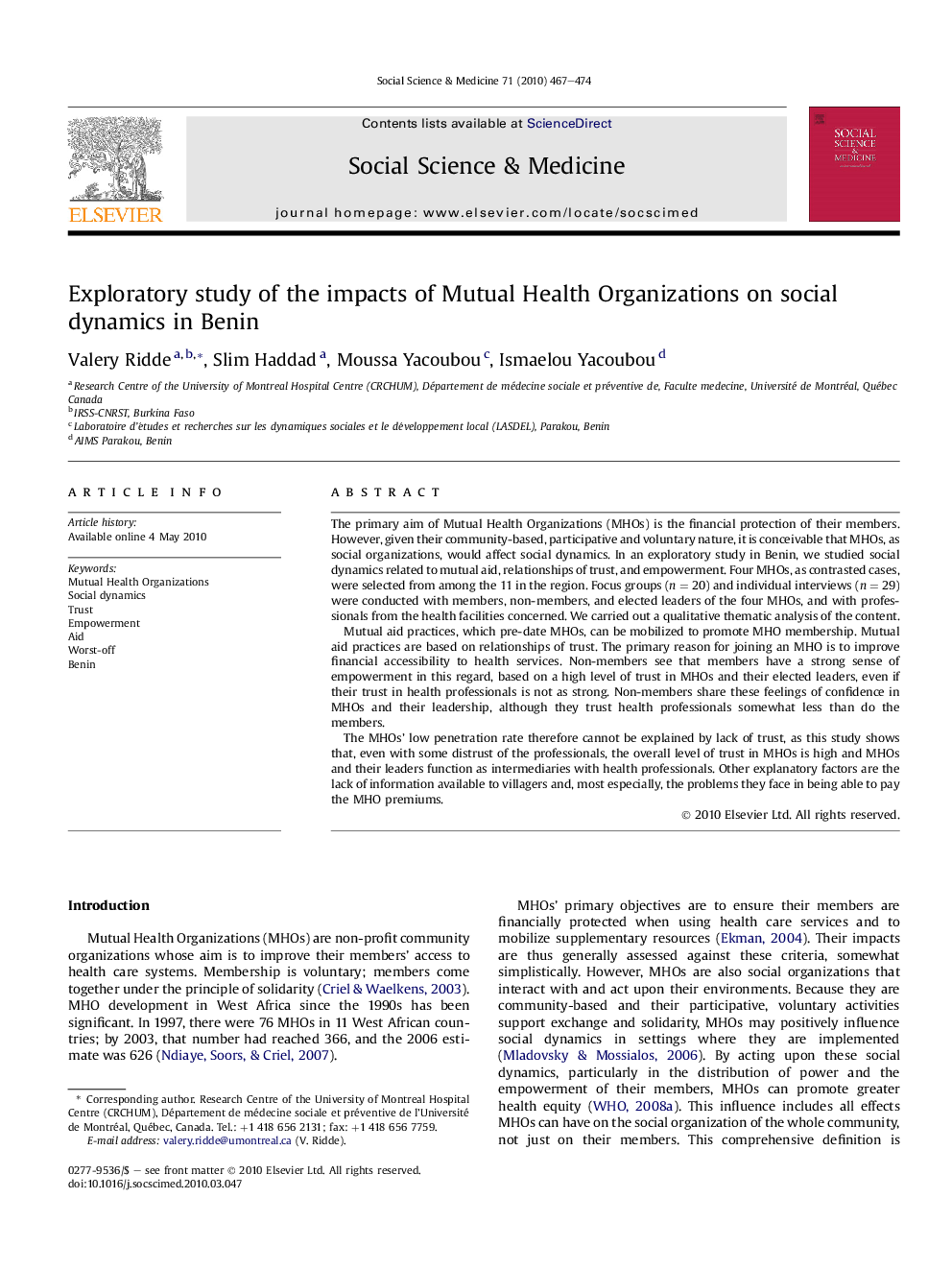| Article ID | Journal | Published Year | Pages | File Type |
|---|---|---|---|---|
| 953077 | Social Science & Medicine | 2010 | 8 Pages |
The primary aim of Mutual Health Organizations (MHOs) is the financial protection of their members. However, given their community-based, participative and voluntary nature, it is conceivable that MHOs, as social organizations, would affect social dynamics. In an exploratory study in Benin, we studied social dynamics related to mutual aid, relationships of trust, and empowerment. Four MHOs, as contrasted cases, were selected from among the 11 in the region. Focus groups (n = 20) and individual interviews (n = 29) were conducted with members, non-members, and elected leaders of the four MHOs, and with professionals from the health facilities concerned. We carried out a qualitative thematic analysis of the content.Mutual aid practices, which pre-date MHOs, can be mobilized to promote MHO membership. Mutual aid practices are based on relationships of trust. The primary reason for joining an MHO is to improve financial accessibility to health services. Non-members see that members have a strong sense of empowerment in this regard, based on a high level of trust in MHOs and their elected leaders, even if their trust in health professionals is not as strong. Non-members share these feelings of confidence in MHOs and their leadership, although they trust health professionals somewhat less than do the members.The MHOs’ low penetration rate therefore cannot be explained by lack of trust, as this study shows that, even with some distrust of the professionals, the overall level of trust in MHOs is high and MHOs and their leaders function as intermediaries with health professionals. Other explanatory factors are the lack of information available to villagers and, most especially, the problems they face in being able to pay the MHO premiums.
